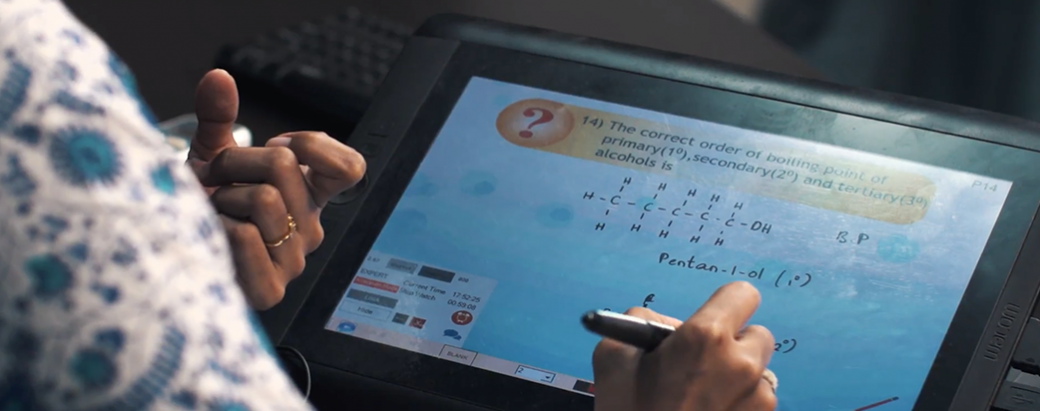
About the Project
This project is one of the 2017 WISE Awards finalists.
The Satellite & Advanced Multimedia Education (SAME) program is designed to help rural and urban poor students in their efforts to clearly understand concepts, expand their knowledge and improve their abilities in Mathematics, Science and English. Tele Education Project – SAME relies on a unique hybrid satellite-terrestrial communication delivery model, to bring various knowledge sources on to a single platform, so as to make their teaching available to students via LIVE and interactive sessions broadcast from studios. The sessions are delivered in the local language of the state as well as in English. Animation, graphics and other innovative multimedia have been integrated with the lesson developed on the basis of school curriculum to help the students. This system acts as a supplement to the existing system of a local teacher teaching in the classroom.
Context and Issue
Shortage of adequately trained teachers, rampant teacher absenteeism, inadequate tools and aids for the teacher, dropouts and low attendance due to lack of motivation, inadequate infrastructure and connectivity, chronic power outages are factors negatively affecting student learning outcomes especially in rural and remote areas in India. For instance, of the total second grade students surveyed in the state of Karnataka in 2014, 82 percent did not have the reading ability expected of their grade.
The percentage of students in grade five who could read text from second grade text or do division has been consistently lower than national averages. Of the total grade five students surveyed in Karnataka in 2014 only 21 percent (national average of 24 percent) could read English sentences and only 20 percent (national average of 26 percent) could do simple division. Of the total children enrolled in grade eight, 12.9 percent could not read simple words and 29.4 percent were unable to read grade two text.
Solution and Impact
Tele Education Project – SAME aims to address the large scale disparity in access to quality education between urban and rural areas. Achieving the same in a cost-effective manner is also an additional requirement. The solution was conceived as a satellite-based live interactive training program transmitted via EDUSAT. This unique hybrid technology integrates the best features of VSAT and the terrestrial communication model.
The objectives of the project are:
- To address the gap in quality of education between urban and rural areas, particularly in government schools
- To strengthen conceptual understanding and elevate learning levels in Mathematics, Science and English
- To improve the ability of rural students to compete with their urban counterparts with confidence, facilitating their entry into higher studies
- To facilitate all-round development by sharing information on life-enriching activities such as multiple intelligence, sports, and music.
Additional attributes of the model are: Interactive system where students can get their queries clarified simultaneously through multi-moderator network as well as scientific evaluation, impact assessments including pre and post-tests – with such tests performed both on target schools and control schools. IIM-Bangalore undertakes regular impact assessment of the project. The Tele Education Project – SAME program has improved learning outcomes for the beneficiary students. Every year, approximately 180,000 students benefit from SAME solution.
Future Developments
To popularize the relevance of Tele Education Project – SAME , Edutel and certain other supporting organizations have launched a social initiative called the 10KEN program (www.10ken.org), with an objective to bring quality education within the reach of students from disadvantaged backgrounds across the globe. The 10KEN consortium will implement SAME pilots in different regions globally, covering more than 50 Government schools in each pilot for up to three years. The desired outcome is to make available a functional system and data for evaluation of cost effectiveness and impact by the local state educational authorities. 10KEN program is planned to be supported through CSR and grants.


